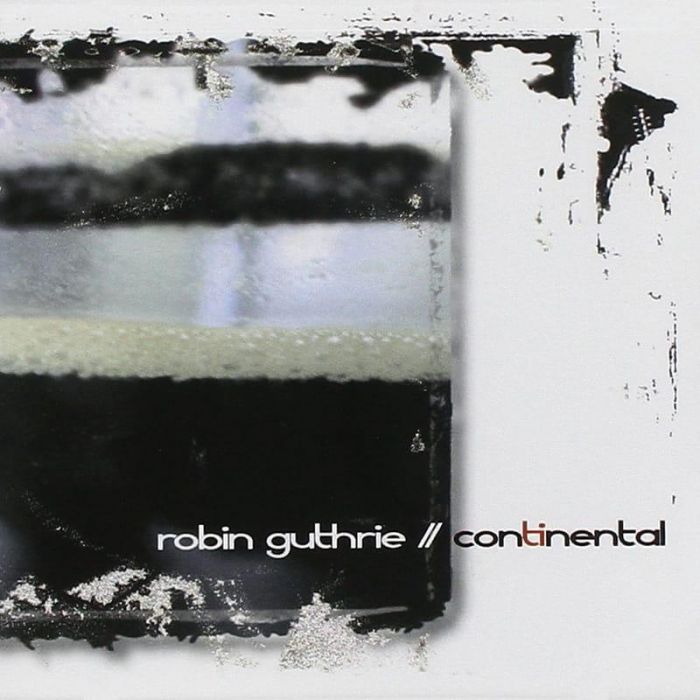Continental by Robin Guthrie (Review)

Who knew Robin Guthrie could rock out? After all, this is the man who, as a member of the seminal dreampop group Cocteau Twins, practically defined the sound of an entire genre with his shimmering, ethereal guitar sounds and melodies — elements that still influences an army of followers to this day. But with Continental, Guthrie shakes free somewhat of his own well-defined sound. Many of the flourishes that one attributes to the man are still present, but the album is also quite unlike anything I’ve heard from him.
In many ways, it’s really unfair to dredge up Cocteau Twins comparisons, even if it is tempting. For starters, Continental is a largely instrumental affair. Vocals only appear here and there, wordless and in the background, a far cry from the glossolalia that has accompanied Guthrie’s sounds. I’ll be honest, it is a bit of a liability. It’s quite tempting to imagine what the sparse, autumnal “Conquering the Romantic” or the delicate interplays on “Crescent” might sound like with such a vocal accompaniment. And when all you get is “Crescent“ ‘s wordless accompaniment, it’s easy to feel a little, well, cheated.
But that also ignores the fact that 1) Guthrie is trying something that’s different than his normal stock in trade (e.g., check out the more straightforward “rock” moments of “Monument” and “The Day Star”) and 2) the album nevertheless does contain some lovely little moments throughout. There’s the aforementioned “Conquering the Romantic,” the drowsy keys that open up “Amphora” and eventually blend in with chiming guitars, the graceful little cascades that drizzle down through “The Day Star” like tears down a face, and so on.
I do prefer the disc’s driftier aspects. There’s just something wrong about hearing guitarwork as effortless and ephemeral as Guthrie’s “weighed down” by such mundane, earthly things as drums and basslines (and I say this as a former bass player myself). They feel stripped down, forced to be confined by the album’s more rhythmic aspects. The strongest moments of the disc are when Guthrie allows his guitarwork to billow out and become windswept à la Victorialand (my last Cocteau Twins reference, I promise).
Still the high points of the disc are lovely, when taken on their own strengths. As with anything Guthrie has been involved in, it’s best just try and lose yourself in it, to let sounds just sort of wash over you. The more “rock-oriented” aspects might be a little rough to get through, and might dispel the ambient mood a bit, but there’s plenty of other stuff here that should be enjoyable. It’s still lovely to see someone like Guthrie hard at work, and it looks like we won’t see any lack of material from his this year, what with two new EPs recorded and a new full-length collaboration with the illustrious Harold Budd on the way.